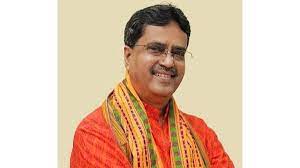Tripura has set its sights on achieving self-reliance in healthcare, a vision that underscores the state government’s commitment to transforming medical services for residents. Recent announcements from Chief Minister Dr. Manik Saha reveal a series of infrastructure developments and healthcare initiatives designed to address gaps in service access and quality. Tripura’s focus on self-sufficiency in healthcare, according to CM Saha, reflects both a commitment to providing essential services close to home and a broader vision to ensure that residents receive quality care without having to travel outside the state.
The government has been actively establishing new hospitals, enhancing facilities at existing ones, and training a robust healthcare workforce. These initiatives mark a significant stride toward reducing the dependency on out-of-state facilities for critical treatments. The government has initiated construction on major hospitals in key areas and invested in upgrades for primary health centers across rural districts, which often face the highest shortage of resources. CM Saha emphasizes that self-reliance in healthcare is essential for the state’s growth and citizens’ well-being. A focus on training and development of medical personnel is central to this effort, aiming to increase the number of specialized doctors, nurses, and technicians who can provide care locally.
One of the state’s landmark projects is the construction of the new super-specialty hospital in Agartala, which, once complete, will house advanced medical technologies and specialized departments covering cardiology, neurology, and oncology, among others. The hospital, expected to cater to patients from Tripura and neighboring states, aims to reduce the need for patients to travel to larger cities like Kolkata or Guwahati for specialized care. This facility also includes partnerships with leading national health institutes to ensure that the hospital remains equipped with modern medical advancements.
In addition to urban-focused developments, the government is prioritizing healthcare for rural areas. Tripura has embarked on a mission to improve healthcare access in remote villages by establishing mobile medical units that travel to areas where permanent facilities are not yet available. These mobile units, staffed by doctors and nurses, provide basic healthcare services, vaccinations, and health education. This approach is especially beneficial for villagers who may otherwise face logistical challenges in reaching healthcare facilities. With a focus on preventative care, the state aims to reduce the burden of easily preventable diseases through these mobile health units.
CM Saha has also highlighted the importance of digital healthcare solutions in expanding access to medical services. The introduction of telemedicine services has connected patients in distant areas with specialists in urban centers, making it possible to consult experts without physical travel. The government has partnered with national telemedicine networks to create a system where patients, even from the most remote villages, can access diagnostic services, mental health counseling, and consultations for chronic illnesses. By leveraging technology, the state hopes to bridge gaps in healthcare access, especially for patients who require frequent check-ups or ongoing treatments.
Tripura’s focus on affordable healthcare has led to initiatives that reduce costs for residents, including subsidies for essential medicines and free treatment programs for low-income families. The Chief Minister noted that these efforts are directed toward ensuring that no resident is deprived of medical care due to financial limitations. The state government has collaborated with pharmaceutical companies to supply cost-effective medicines and necessary equipment to government hospitals.
These healthcare reforms are expected to have a lasting impact on the overall health of the population, with a particular emphasis on maternal and child health. Tripura has introduced incentives for expecting mothers to deliver in hospitals, providing free prenatal and postnatal care, along with nutritional support. The program includes immunization drives and education on family planning, aiming to lower the infant mortality rate and improve maternal health outcomes.
Tripura’s commitment to healthcare self-reliance has resonated with local communities, as residents witness the transformation firsthand. The government’s initiatives not only focus on immediate improvements but also lay the foundation for a resilient healthcare system that can adapt to future challenges. By fostering an environment where local healthcare providers are empowered and trained, the state aims to cultivate a self-sustaining medical ecosystem.
Chief Minister Saha remains optimistic that with continued investment and a focus on innovation, Tripura will not only become self-reliant in healthcare but also set an example for other states aiming to improve health infrastructure and service quality.


